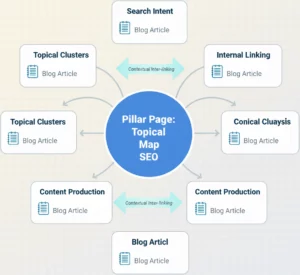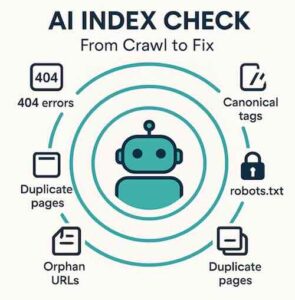
In an increasingly digital world, AI Writers play a crucial role in automating content creation. However, to be effective, understanding and integrating context is essential. This article explores the various facets of the importance of context for an AI Writer.
Table of Contents
ToggleThe Rise of AI Writers in a Digital World
The Growing Importance of AI Writers in Content Creation
AI Writers have become indispensable for content creators, businesses, and even freelancers. By automating many writing tasks, they enable users to focus on higher-value activities. For instance, businesses can generate blog articles, product descriptions, and even marketing content in record time.
The Revolution of AI-Assisted Writing and Its Implications for Content Creators
The AI-assisted writing revolution also has profound implications for content creators. AI Writers can analyze billions of data points to produce relevant and engaging content. Applications range from automated writing to script creation for marketing activities and business operations. This enables enhanced personalization and improved user experience.
Overall, the increasing importance of AI Writers is undeniable in our current digital landscape. Let’s delve into a more detailed understanding of their operation and applications.
Understanding AI Writers: Operation and Applications
The Technological Engines Behind AI Writers
AI Writers are powered by advanced natural language models and machine learning algorithms. These technologies are built upon foundational models and other innovations that enable machines to understand and generate natural language content. For example, models like OpenAI’s GPT-3 can generate impressive text with minimal input.

Application Areas: From Content Writing to Software Development
The application areas of AI Writers extend beyond content writing. They are also used in software development, allowing developers to automatically generate lines of code or scripts. This automation has the potential to revolutionize business operations and increase efficiency in various sectors, including marketing, sales, and financial services.
Understanding the technology behind these tools and their broad applications helps us appreciate their potential impact. However, context remains a central element for an AI Writer to be truly effective, as we will explore in the next section.
Context: The Cornerstone of AI Writer Effectiveness
The Importance of Context in Natural Language Processing
Context plays a crucial role in natural language processing. Without it, an AI Writer could produce text that, while syntactically correct, lacks relevance and comprehensibility. For example, understanding context allows AI to grasp subtle nuances such as tone, style, and intentions behind words. This is particularly important in specific applications such as content writing or customer interactions.
How Does an AI Writer Adapt to Context to Produce Relevant Content?
AI Writers adapt to context through supervised and unsupervised learning models that analyze vast datasets. These models are designed to understand not only individual words but also their relationship with adjacent terms. This enables them to produce detailed and coherent content. For example, in marketing, an AI Writer can tailor its output based on the target audience, whether young adults or professionals in specific industries.
The importance of context in AI Writer effectiveness cannot be overstated. Mastering this concept allows users to maximize the benefits of automation. Let’s now examine the advantages and challenges of integrating AI Writers into content strategies.
Advantages and Challenges of Integrating AI Writer into Content Strategies
Personalization and Enhanced User Experience
One of the greatest advantages of AI Writers is the ability to personalize content to enhance user experience. By analyzing specific data on user preferences and behaviors, AI Writers can generate highly tailored content. For example, an e-commerce site can use an AI Writer to create product descriptions that precisely meet customer needs.
Ethical and Legal Challenges: Plagiarism, Reliability, and Bias
Despite the benefits, integrating AI Writers also poses ethical and legal challenges. Concerns arise regarding the reliability of generated content and the possibility of plagiarism, as AI may reproduce sentences or ideas from other authors without proper citation. Moreover, biases can be embedded in language models, affecting the neutrality and fairness of the produced content. Therefore, businesses must adopt an ethical and responsible approach when using these tools.
Personalization and enhanced user experience offer significant benefits, but they come with challenges. We will continue to explore these aspects with real case studies in the following section.

Case Studies: AI Writer in Action
Improving Customer Operations through AI
A notable example of AI Writers in action is in customer operations. Companies like Amazon use language models to automatically respond to customer inquiries. This significantly reduces response times and improves customer satisfaction. By automating these interactions, worker efficiency can be increased, allowing the team to focus on more complex tasks.
Enhancing Personalization in Marketing and Sales
In the field of marketing and sales, AI Writers play a crucial role. Companies like Netflix use AI Writers to create personalized recommendations based on users’ viewing history. This personalization not only enhances user engagement but also boosts sales by suggesting products or services that perfectly meet each customer’s needs. The applications in marketing are extensive and span various industries.
Accelerating Software Development and R&D
In software development, the use of AI Writers speeds up code generation. Companies like Microsoft use these technologies to facilitate script writing and documentation needed for various projects. In R&D, automating report and analysis generation via AI Writers has freed up human resources for more creative and innovative tasks. The implications for research are thus very promising.
Case studies illustrate the breadth and diversity of AI Writers’ uses. Let’s now explore their impact on various industries.

The AI Writer and Its Impact on Various Industries
Implications for the Banking Sector
In the banking sector, AI Writers are used to automate operations and generate detailed reports. For instance, banks can utilize AI to draft financial reports, providing accurate and timely analysis. This automation has the potential to save billions while enhancing the efficiency of banking services. Moreover, the generated content can be customized to meet specific regulatory requirements in each country.
Transformations in Retail and Consumer Goods
The retail sector has also witnessed significant transformations thanks to AI Writers. Companies like Walmart use these technologies to write product descriptions, customer reviews, and even marketing campaigns. This not only improves user engagement but also boosts conversion rates. Automating these tasks allows employees to focus on more strategic aspects such as inventory management and sales performance analysis.
Advancements in Pharmaceuticals and Medical Products
In the pharmaceutical field, AI Writers are increasingly being adopted. Companies can use these tools to draft drug inserts and research reports. This not only speeds up the documentation process but also ensures rigorous accuracy crucial in this sector. Foundation models enable in-depth analysis of clinical data, contributing to crucial medical advancements.
The impact of AI Writers is significant across different industries. To maximize these effects, understanding how to optimize the use of these tools is essential, as discussed in the next section.
Optimizing the AI Writer for Quality Content
Understanding the Needs and Preferences of the Target Audience
To optimize an AI Writer, understanding the needs and preferences of the target audience is crucial. This requires a thorough analysis of user behavior, browsing history, and interactions with content. For example, companies like Spotify use this approach to create personalized playlists for each user. Deep understanding of needs makes recommendations more relevant and engaging.
Using Feedback and Data for Continuous Improvement
Continuous improvement is key to ensuring that the AI Writer remains effective and relevant. Utilizing user feedback and analytical data helps refine algorithms and improve the quality of generated content.
For instance, technology companies like Google constantly gather data to adjust their language models. This feedback loop continuously enhances performance, ensuring increased user satisfaction.
By optimizing the use of AI Writers, companies can maximize their potential. However, ethical considerations remain a major concern, as discussed in the next section.

Ethics and Responsibility in AI Writer Usage
Responsibilities of Developers and Companies
Developers and companies bear significant responsibility in ethically using AI Writers. They must ensure that the language models used are free from bias and respect intellectual property rights. For example, in cases of plagiarism, it’s crucial to implement mechanisms to detect and properly cite original sources. Developers must also be transparent about the AI training process to build user trust.
Legal Considerations and Regulatory Frameworks
Legal considerations and regulatory frameworks are also crucial. Governments and regulatory bodies are working to establish laws to regulate the use of AI Writers. For instance, in Europe, GDPR imposes restrictions on the use of personal data, directly impacting the development and use of language technologies. Companies need to be aware of these regulations to avoid costly fines and maintain user trust.
Ethics and responsibility are essential aspects of AI Writer usage. For a harmonious future, collaboration between AI and humans is paramount, as explored in the next section.
Towards Harmonious Collaboration between AI Writers and Humans
The Future of Writing: Complementarity Rather Than Replacement
The future of writing lies in harmonious collaboration between AI and humans. Instead of replacing writers, AI Writers can complement them by automating repetitive tasks and providing creative suggestions. For example, in journalism, writers can use AI Writers to automatically generate basic reports, allowing them to focus on in-depth analysis and exclusive interviews.
The Importance of Education and User Awareness
Education and user awareness are crucial for successful adoption of AI Writers. Users need to understand the capabilities and limitations of these tools to use them effectively. For example, training sessions and workshops can be conducted to help content creators integrate these technologies into their workflow. Increased awareness will also help alleviate concerns regarding job loss and ethical biases.
Harmonious collaboration between AI and humans offers a promising path for the future. Let’s continue with a summary of the key points discussed.
Summary of Key Points
In conclusion, understanding context is fundamental for an AI Writer to create relevant and effective content. The rise of AI Writers in a digital world demonstrates their potential to revolutionize various industries, from marketing to financial services. However, it’s crucial to consider ethical aspects and responsibility to ensure fair and transparent use of these technologies.
Future Outlook for AI Writers in Content Creation
The future outlook for AI Writers is highly promising. With continuous optimization and responsible adoption, these tools can transform how we create and consume content. Collaboration between AI and humans, based on mutual understanding and complementarity, will open new possibilities for innovation and creativity.

Eric Ibanez
Co-fondateur de Hack The SEO
Eric Ibanez a créé Hack The SEO et accompagne des stratégies SEO orientées croissance. Il est aussi co-auteur du livre SEO pour booster sa croissance, publié chez Dunod.
Suggested Articles




